After my last article on how to calculate the total dynamic head (TDH) of your swimming pool, I decided to tackle a subject in a similar realm: high and medium head pumps. In the Total Dynamic Head (TDH) blog post we explained that TDH is essentially the force/resistance working against the pump as it pushes water through your pipes. The higher the feet of head, the harder your pump needs to push to counteract that resistance.
Calculate your feet of head according to the blog post or your choice of online calculator and select the style of pump accordingly:
- Medium Head Pump < 65 Feet of Head
- High Head Pump > 65 Feet of Head
To illustrate our devotion to this topic, here is our contributor, Patrick, describing high pressure and high flow in a video from years back:
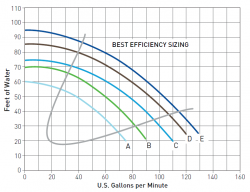
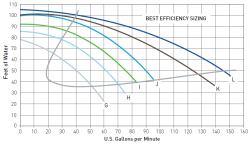
The Pentair Challenger Series offers a gleaming example of the difference between high head and medium head outputs. The Challenger is a rare pump in the series that offers both a high flow and high pressure. The pump curves show a comparison of flow rates in congruence with horsepower and feet of head.
The High Flow Challenger on the right shows a sharp dip as the feet of head pressure rises. On the other hand, the High-Pressure Series keeps a steady rate of climb as the feet of head peaks. The two styles of Challengers are virtually identical besides the impeller and diffuser designs. These parts turn the spinning force of the motor into pumping action.
Medium Head Pumps (aka High Flow Pumps)
Medium head pumps, also known as high flow pumps, are the most common types found on pool systems today. A basic swimming pool set-up that lacks an attached spa or other water features like waterfalls will usually not require anything more than a medium head pump. High flow pumps are ideal for pools with 35-65 feet of head pressure.
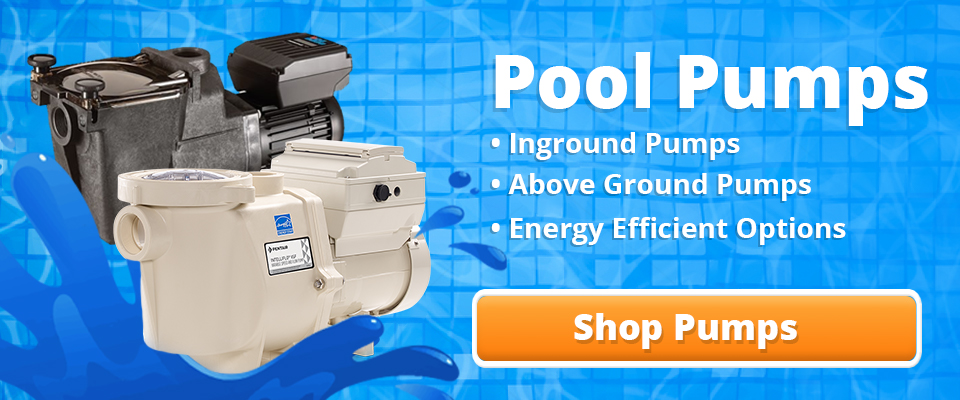
Popular Medium Head Pumps
| Hayward Super Pump | Pentair Challenger - High Flow | Pentair Whisperflo |
|---|---|---|
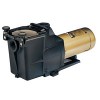 | 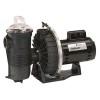 | 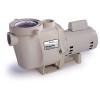 |
| Hayward Super Pump | Go to Pentair Challenger | Go to Pentair Whisperflo |
High-Pressure Pumps (aka High-Performance Pumps)
If your pool has a spa attached or your poolscape includes waterfalls, deck jets, or bubblers that draw from your main pump, we seriously suggest installing a hardy high pressure pump. All those aforementioned add-ons are tacking on yard after yard of feet of head pressure that would slow the flow rate of a medium head pump to a trickle. High pressure pumps earned that name by being able to push water through long lengths of pipe without suffering heavy drop-offs in flow.
High-pressure pumps are ideal for pools with elevated solar heaters. The value of head pressure also accounts for the rise (or lift) of water as it travels through a plumbing line. The feet of head and rise in feet have a 1:1 ratio. A solar heater may tack on 10 to 20 feet of feet of head from elevation alone. Once you add the extra length that is racked up by the coiled heat exchangers you may face 30 feet of head on top of your standard pool plumbing.
Popular High Head Pumps
| Jandy Stealth | Jacuzzi Magnum | Pentair Challenger |
|---|---|---|
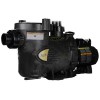 | 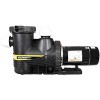 |  |
| Go to Jandy Stealth | Go to Jacuzzi Magnum | Go to Pentair Challenger |
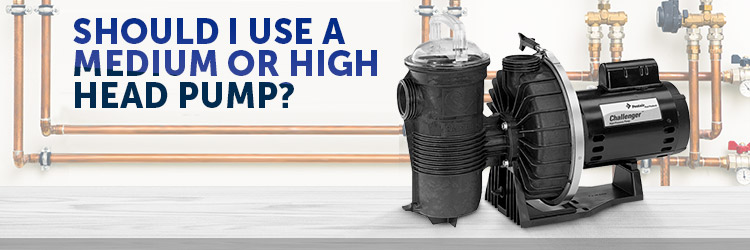
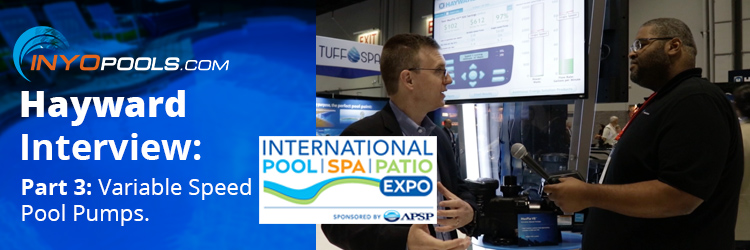
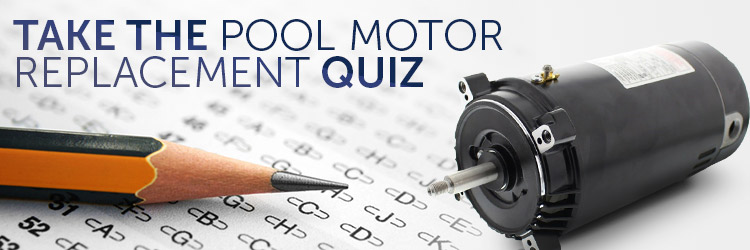
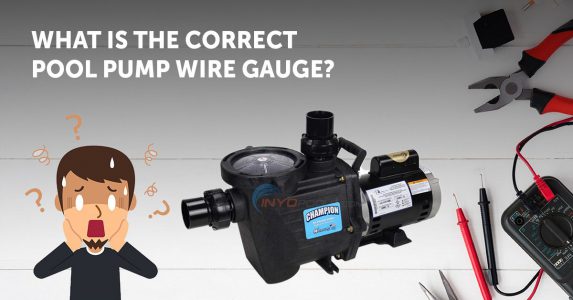
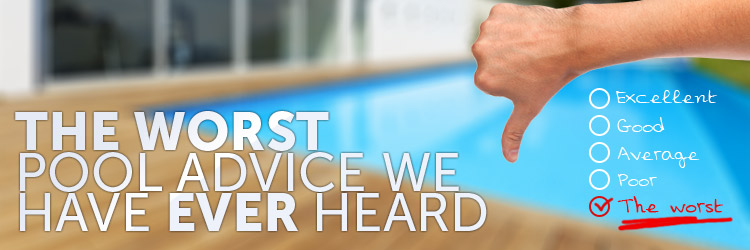






I’ve swapped out and replaced part # for part # on my 2 HP Challenger:
Shaft Seal
Mounting plate
Impeller
Diffuser
Volute
Band Clamp
O-rings
Getting a small continuous drip at seal plate and housing….don’t understand why. Pool guy comes in and changes out the diffuser and impeller to a 1HP version. no leak now, but pop ups are barely popping out water. Also paramount water valve is reading 30 PSI, never been that high.
is the 2HP impeller/diffuser high pressure parts too much? should it be 2HP impeller/diffuser high flow instead? like i said, i swapped out part # for part #….
So I am a little confused. Did you switch to a 2 hp from a 1 HP, vice versa, or is there a mistype in there somewhere? Because in your comment it sounds like you have switched HP or something but also go on to say you have switched like for like by using the same part number.
Challenger pump with 2 HP motor. I personally replaced mounting plate/impeller/diffuser/seal plate(355317/355604/355545/355303)…these are the exact part numbers I removed from what was in place when in working order.
Upon replacing the above said parts, I got a leak at the bottom of volute/seal plate which was not the original issue.
Given that I replaced everything new, and I got a leak, I decided at this point to call in a professional. Their diagnosis was it was leaking because 2HP was too much force. Their solution was to keep the 2HP motor and replace diffuser/impeller to the 1HP version(355074/355077).
Their diagnosis doesn’t make much sense if the pump was fine until a set of like for like parts were installed. The two horsepower would also put out more flow, so there shouldn’t be a pressure issue unless your filter is dirty.
My first instinct when I see a leak like that is to break down the pump and redo the steps of installation to ensure everything was done correctly.
The 6 port water valve was also diagnosed as “bad” and encouraged to be replaced, so I did that. All 2 HP parts were put back on and and pump replumbed… leak at seal plate.
By process of elimination, removed the water valve and voila…no leak. put the old water valve in that was suspected as bad…also no leak.
Why would a new water valve cause leakage at the seal plate? definitely a strange one…
Don’t know. Maybe they didn’t glue it, tape it as they should have.
I have a WhisperFlo WF-28 on my pool right now, but it’s getting ready to die. I’m figuring out what to replace it with and was going to just get a motor for now as the pool is ~15 years old so the heater, filter, booster pump, etc are all going to need replacing in the next couple years anyway.
My problem is that I think the WF-28 might be undersized. I calculated my TDH using your charts and I arrived at 165 feet (there’s a spa, two drains 6.5 feet deep, and 5 returns so all those joints really added up, I think). From the WF-28 charts it looks like it’s not rated for this many feet.
So my question is, can I get a high pressure motor to replace the motor on the WF-28 or should I replace the whole pump? I assume the whole pump because I’m guessing the whole unit is built to either handle the high pressure or medium pressure.
Am I correct in my logic? Does 165 feet of head sound crazy? Since I’m looking at an overhaul in the next year or so can I get by with a WF-28 replacement motor and just run it longer?
I’m going to be honest, I am a little skeptical of the feet of head measurement. read through this other guide to get a clarification on feet of head: How Do I Calculate Feet of Head for My Pool?
Also, if the WF28 was working fine for however many years, I would keep the setup as is, unless there is a sudden needs to turn over your water more. If the feet of head was 165 that pump probably wouldn’t be able to prime itself let alone pump enough water to keep the pool clean. A replacement 2 HP motor (B855) for the WF28 is available or you can go up a horsepower, but if you upgrade the motor you will also need to change the impeller.
Hi sir, got a pool under construction with volume capacity of approx 26,124 gallons (US) which should be filtered every 8 hrs. Average flow head of skimmers and drains is 40 feet. Before I purchase, please advise me on the appropriate size of the most energy efficient pump and filter suitable to this size of pool. Thank you.
Matthew – how much should a salt water chlorinator and a cell cost? We are in south florida
That can vary according to manufacturer and pool size; but for a quick glimpse at pricing, review our Salt Chlorine Generator section.